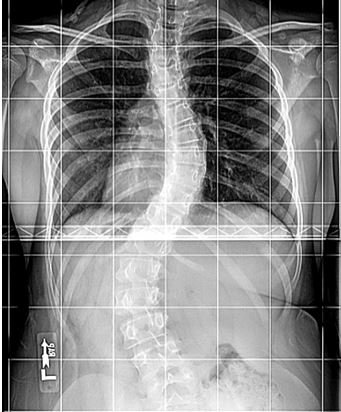Fractured Backbones
Monday, 18 September 2023By Patricia Lustig & Gill Ringland

In March 2023 we wrote about the threats that the world is experiencing today[i].
We discussed four major threats – in addition to Global Heating, Collapse of Global Health, and Breakdown of International Relations, we introduced ‘Global Backbone’.
A backbone is an agreed set of rules which are shared and support the way that things work. Societies design backbones to enable their particular society to work well and to be effective. Backbones cover many aspects of life such as financial services, governance, international (technical and professional) standards. As we discussed the concept of backbone across our network, we realised that any backbone can only function on the foundation of a Rule of Law.
The Rule of Law consists of four essential components[ii]:
- Everyone is equal in front of the law
- Everyone has access to the published law
- That law is administered by an independent judiciary.
- That everyone has access to justice.
The Rule of Law can be seen as the foundation of all other rights, and, without rights, nothing else works. For example, without the Rule of Law:
- There is no contract system and no financial services
- There is no intellectual property so that wealth creation is stymied.
There is evidence that the Rule of Law is not always observed –
- Elites and countries are seen to flout the law globally
- In some parts of the world the judiciary is not independent.
There is also evidence that the decay of the Rule of Law is a global phenomenon[iii]. Reasons suggested for the decay of the Rule of Law include[iv] democratic decay and social inequality.
We find it useful to explore the causes and effects of this decay through considering the visible fracturing of backbone systems, which expose the underlying characteristics of the Rule of Law.
Individual backbones are designed for a set of circumstances. And circumstances change. With time, systems of governance, trade, standards – backbones - may become unfit for purpose. They can decay through lack of maintenance. They may become irrelevant, challenged by new circumstances.
Backbones and their underlying detailed laws often evolve over time to meet these new circumstances. The threat is when they fracture and break rather than evolve. We are particularly focused on international backbones in the discussion below – though national backbones (health services, education systems, physical infrastructure) are also fracturing in many countries.
What Is Causing [International] Backbones To Fracture?

The world is emerging into a newly multipolar system where differing worldviews co-exist. Many of the backbones used over the past decades (these include the many international cooperation institutions set up after World War II) are no longer acceptable to the "Majority World"[v]. This has come about partially through the disruptive effect of information and communications technology in supporting the exchange of rules-based information. The majority of the world has access to information now, in a way that was never possible before. So when international organisations, governments or corporations renege on a rule, it is visible to many. Many of these post WWII backbones are fracturing.
The internet is another international backbone. It depends on hardware, software and platforms across many different suppliers operating in many different locations and countries. The suppliers work to agreed international standards of components. The internet is fracturing through the development of new “islands”, and it is threatened by cyber and other attacks on strategic points. The effects of a fracture in the internet could cripple millions of users, countries, financial systems, transportation systems - similar to the blocking of the Suez Canal.
What is needed to avert or mend fractured backbones?
Fear of existential risk can be an invitation for people with very different worldviews to cooperate to avert or mend fractured backbones. They can take the opportunity to agree where the rules need to apply, what the rules should be, and leave the rest out. We like the example of Reagan and Gorbachev quoted in Ian Bremmer’s book The Power of Crisis. The two leaders recognized in each other the desire to move past tense politics and end a nuclear standoff[vi]. The approach was to agree on an area where they could and needed to work together: the Treaty agreed to the elimination all nuclear missiles with a range between 500-5500 km. Stockpiles started to be reduced in the short term.
A recent example of adapting to fractured backbones was the closing down of the National Air Traffic Control system[vii] which provides a backbone across airspace - and the replacement with manual operation – which proved to be problematic for many thousands of passengers.
In conclusion: the world is seeing many changes. The Rule of Law as a set of principles is an important base as countries, economies and societies depend on a variety of backbones to facilitate life work and pleasure. Recognising the concept and the importance of backbones is a first step to averting their fracture and to mending the backbones that are fractured.
[i] https://www.longfinance.net/news/pamphleteers/threats-in-2023/
[ii] https://www.lexisnexis.co.uk/blog/future-of-law/what-is-the-rule-of-law
[v] https://borgenproject.org/tag/majority-world/
[vi] Bremmer, I. 2022, The Power of Crisis, Simon and Schuster, ISBN-10 1982167513
[vii] Thousands of air passengers face delays after UK air traffic control fault - BBC News